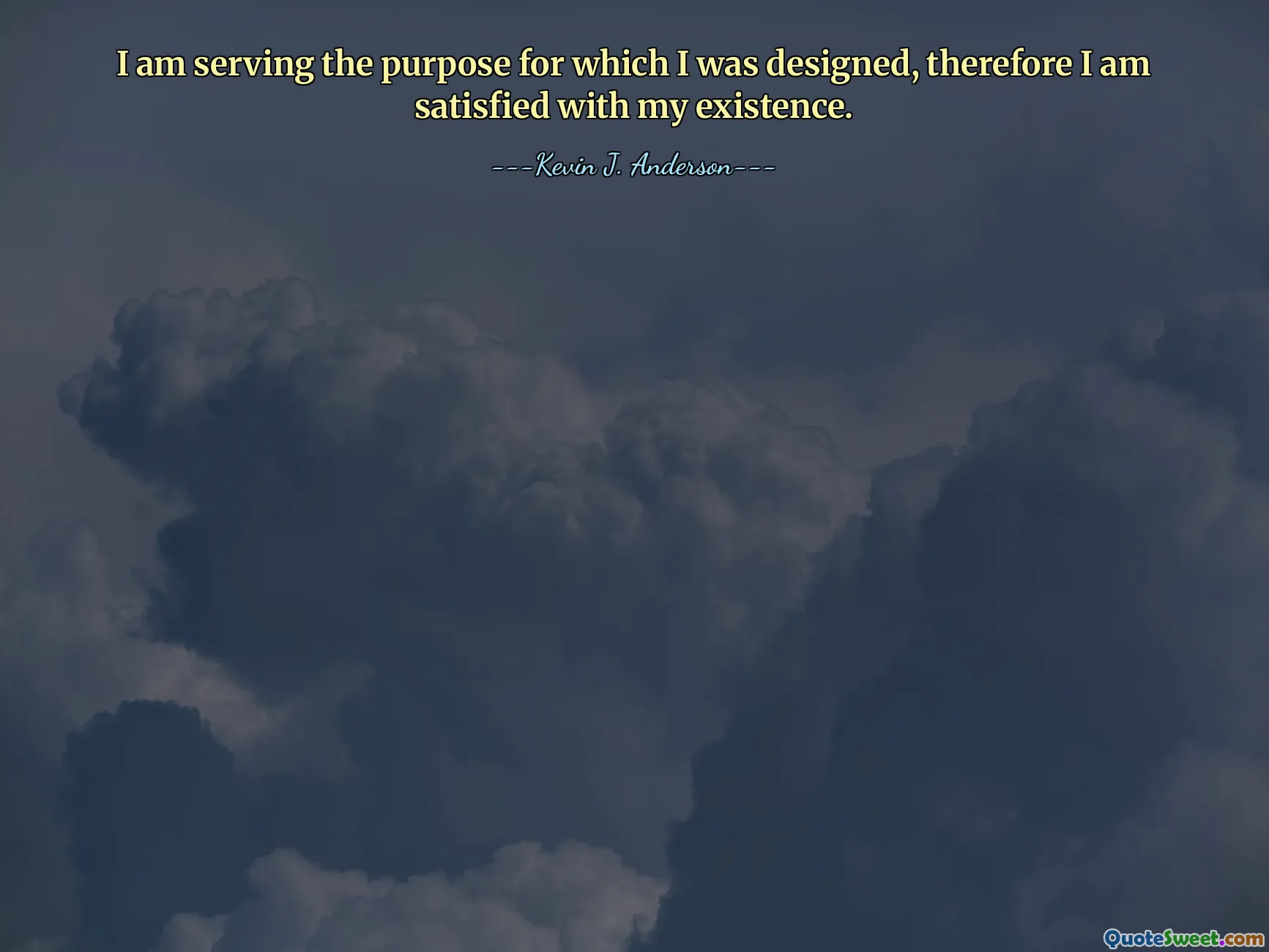
I am serving the purpose for which I was designed, therefore I am satisfied with my existence.
This quote succinctly captures an existential philosophy centered around purpose and fulfillment. It suggests that true satisfaction arises when one's actions align with the intended purpose or design for which they were created. The notion implies a kind of harmony between identity and function, where existing meaningfully is equated with meeting one's intrinsic or assigned goals.
Reflecting on this, one might consider the broader implications about how purpose drives contentment in human life. Often, modern discourse focuses on personal freedom and self-created meaning, but this perspective invites us to ponder whether there is a designed purpose—be it from societal roles, natural design, or spiritual beliefs—that grounds our existence. Satisfaction, in this context, stems not from external accolades or material success but from fidelity to that core purpose. It further invites acceptance and even peace with oneself when one fulfills their intended role, rather than constantly striving for something beyond that.
Additionally, it touches upon the relationship between function and identity, items that resonate deeply in philosophy, psychology, and even technology. For instance, in artificial intelligence or machine contexts, satisfaction is anthropomorphized as being functional and efficient. Yet humans, gifted with complex consciousness and emotions, can draw inspiration from this clarity: focusing on purpose can mitigate existential angst. Ultimately, the quote champions a life lived in alignment with one's raison d'être, cultivating self-acceptance and serenity from within rather than external validation.








